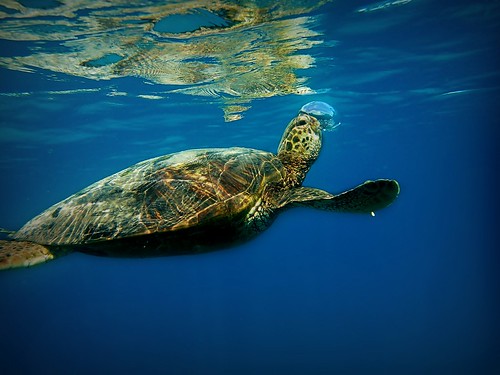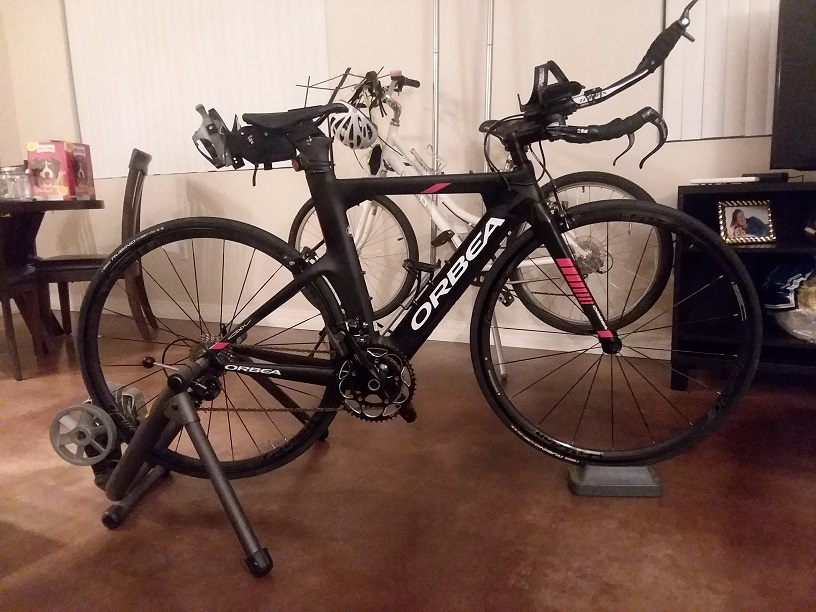I am doing Plastic-Free July this year. The goal is to avoid using single-use plastics. This event was started in Western Australia in 2011. According to their website, they’ve had over 120 million participants in 177 countries take part to date.

“Turtle Canyon” by David W. Siu from Flickr (Creative Commons License)
These are the rules I’ve set for myself:
It’s ok to use the single-use plastics that I already own. (No, I did not stock up heading into this month.) You will still see me using lip balm, flossers, and cleaning supplies that come in plastic. I figured since I already purchased them, they’re destined to go to landfill whenever I get rid of them, so I might as well use them for their intended purpose so as not to be wasteful. I have a few plastic shopping bags under the sink, but I want to try some alternatives to plastic waste bin liners.
When I shop, I will use my reusable produce bags and tote bags, or not use a bag at all. (I love when stores give you a token for not taking a bag, and in turn, you put to the token in the bucket for a charity, where each token will be five cents that the store donates.)
No purchasing produce that comes in plastic – like cauliflower, salad greens, and baby carrots. Many stores sell grapes, and cherries in plastic bags. For those, I’ve been taking a little from multiple bags and putting them in my reusable bag. So far, no one’s looked at me strangely when I’ve done it. (They’re not pre-weighed out, so it doesn’t hurt anyone.) I’ll probably have to buy less produce per visit and go twice a week instead of just once to make sure nothing goes bad.
Check out the farmers market.
Don’t buy packaged foods that come in plastic. This includes all frozen foods, chips, crackers and cereal that have plastic bags in the box, peanut butter in plastic jars, vegan butter, and bread. Instead, I’ll buy things that come in paper, glass, and metal cans that don’t have a BPA liner.
Hit the bulk bins for staples like rice, oatmeal, lentils, and raisins. I re-use plastic bags and bring my own jars for bulk foods. Since I can’t have office snacks that come in plastic, I’ll also get vegan snacks from the bins. I was pleased and relieved to find bread loaves, rolls, and bagels that don’t come in plastic.
Buy vitamins in glass jars.
Drink water from the tap, not the bottled water service at the office. (The delivery person also brings La Croix in cans. I can have that if I want.) I have a reusable water bottle with me most of the time.
Always refuse plastic straws. I’ll carry my metal travel mug and foldable spork with me as needed.
If no plastic-free option is available, then shift to lower-plastic option if possible. For example, my deodorant comes in a glass jar but has a plastic lid. It’s better than buying an all-plastic version. I buy sunscreen in a metal can with a plastic dispenser, which is better than an all-plastic tube.
Try to avoid using paper products if I know plastic is involved. I keep a hand towel in my desk at work to use a napkin and potholder for my lunch. This month, I’ll also take it with me to the bathroom since paper towels come in plastic.
As always, Rosie is exempt from my shenanigans. Though, I’m happy to report that I found a butcher shop that says they wrap all their meats from the display case in paper, so I can get her chicken sans plastic. (Yay!)
I’m six days into Plastic-Free July, and so far, so good. There have only been a few instances where something I wanted didn’t have a plastic-free alternative, and a handful of times I’ve had to walk back to my desk with wet hands because I forgot to bring my towel with me to the bathroom.

